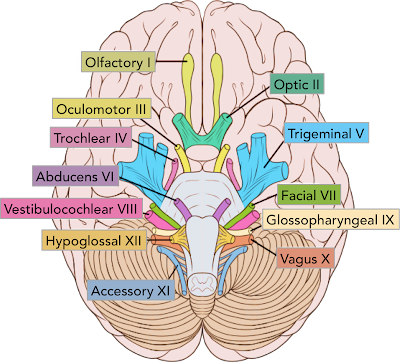New Research Into Why We Sleep - Repairing of the Brain
Why do we sleep? Why do we waste about a third of our lives sleeping, leaving ourselves vulnerable and defenceless. What makes sleep that important that natural selection has decided that the benefits of sleep outweigh its risks?
Most of these questions still remain a mystery, but slowly and surely as we develop in the field of neuroscience, the answers are slowly unravelling.
Sleep is regulated by circadian and homeostatic processes. Several mechanisms can explain the roles of sleep, ranging from macromolecule (proteins, lipids, polysaccharides, nucleic acids etc.) biosynthesis, energy conservation, and metabolite clearance, to synaptic plasticity and memory consolidation. However, why sleep has evolved and which fundamental ancestral functions it regulates, remain enigmatic. D. Zada, I. Bronshtein, T. Lerer-Goldshtein, Y. Garini & L. Appelbaum3D time-lapse imaging was used in living zebrafish (the genome of zebrafish yields significant similarity to the human genome) to define sleep in a single chromosome resolution to show for the first time the effects of sleep on a microscale and observe how it affected singular neurons or brain cells.
 |
| Shows how we share about 75% of our genome with Zebrafish |
Professor Applebaum and his team found that during sleep, individual neurons perform "maintenance" on the nuclei of each cell, which encloses the genetic material of that cell. DNA damage is caused mainly by ionizing radiation, oxidative stress (imbalance between free radicals and antioxidants) and the fact that brain activity causes DNA double-strand breaks in neurons, with exacerbation by beta amyloid plaques.
During wakefulness, the levels of "chromosome dynamics" (these are a fundamental component of genome regulation and cell function) are low, which means brain cells cannot perform proper DNA reparation - as a result DNA damage accumulates. Whilst we are asleep, the levels of dynamics increase and normalize levels of DNA damage in each neuron. Professor Applebaum describes this using an amazing analogy --> he describes DNA damage like potholes in a road, that cannot be repaired during daytime rush hours, rather it is better to fix them at night when the rush isn't as bad.
Zebrafish were perfect to image using a high-res electron microscope - the movement of DNA and nuclear proteins e.g. histones were imaged during a 24 hour cycle - chromosomes were found to be more active at night whilst the body rests, and this increased activity enabled the efficient repairing of DNA.
What would happen if this DNA was not repaired? Sleep deprivation is lethal, it adversely affects the brain and cognitive function and can be fatal in rare cases. The lack of sleep leads to the lack of DNA reparation, this leads to aging, disease and poor overall functioning in an organ or tissue.
------------------------------------------------------------------------------------------------
Further Reading and Sources:
https://www.medicalnewstoday.com/articles/324640.php
https://www.nature.com/articles/s41467-019-08806-w#ref-CR11
https://wellcome.ac.uk/news/zebrafish-genome-yields-significant-similarity-human-genome
https://www.sciencedaily.com/releases/2019/03/190305170106.htm




Comments
Post a Comment